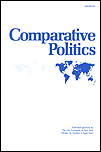Comparative Politics, v. 27, 1995, p. 253-274
Zweig, David Stephen
ABSTRACT: How does foreign trade and investment affect developing states? Do they create transnational alliances that exploit the countryside and undermine state authority and domestic industry? Or do they generate growth and strong states? Their impact in reality is complex. In China, export-led growth and direct foreign investment have spawned “developmental communities” in rural coastal areas whose leaders have dramatically improved peasant welfare and local party/state authority. Joint ventures serve as “linkage channels” for importing new technologies which strengthen the formerly disadvantaged rural industrial sector and allow informal allies—foreign investors and local state officials—to share “rents” in the protected domestic economy. Thus, while these communities prosper, they undermine central control over China’s foreign trade regime and challenge the position of urban-based, state-owned industries that benefit from a monopoly on technological imports.and political stability, if China weathers Deng Xiaoping’s succession and the economy continues to grow, significant numbers of Chinese may return.
Links:
Comparative Politics, v. 27, 1995, p. 253-274
Repository.ust.hk/ir/Record/1783.1-31245



Leave A Comment